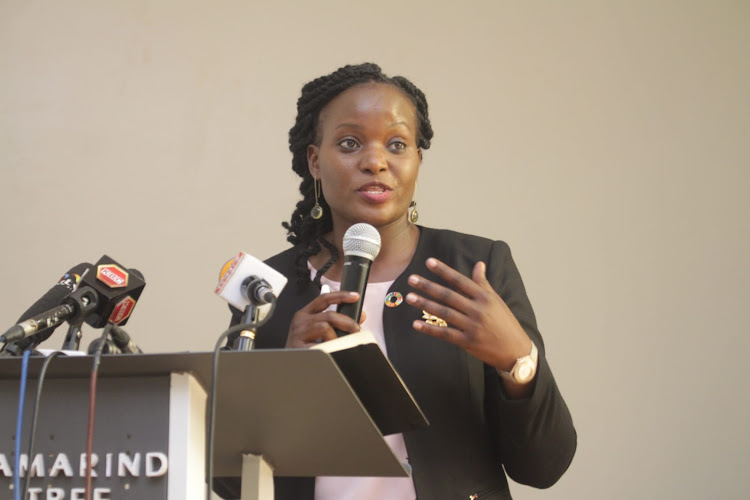
The president’s adviser on women’s rights, Harriette Chiggai, engaged in a discussion with various state officials in a bid to spearhead gender equality, women's empowerment, and participation on Wednesday, October 2, 2024.
“This discussion has come at the right time when the world is dealing with different levels of insecurity and conflicts that are rife within the DRC Congo; Somalia, the Middle East, Russia-Ukraine, Haiti, and other countries,” she said.
The initiative was in a bid to participate together with other leaders in shaping the space for women in peace and security to enrich the outcomes of conflict resolutions.
“Women and children are the biggest casualties of conflict in the world. Over the years, Kenya has experienced various conflicts, including inter-ethnic clashes, political violence, and terrorism, these conflicts have disproportionately affected women,” Chiggai said.
She said women's experiences in armed conflict are often distinct due to their gender roles and societal expectations.
“The unique challenges they face include the highest risk of sexual violence being used as a weapon of war, limited access to prenatal and postnatal care, limited access to contraceptives and menstrual hygiene products, decreased milk production for lactating mothers, and the heavy burden of being the primary caregivers of the members of the community that is at war,” Chiggai said.
The president’s adviser said despite existing data showing women were included in only 13 per cent of peace negotiation teams when they participated, the likelihood of reaching a peace agreement increased by 35 per cent.
“It is profound to see the data sets and comprehend the reasons for the diminished gender-responsive actions in peace resolutions. However, there is still a need for proper data on the same,” she said.
Chiggai lauded numerous efforts put in place by various state actors, such as the UN Security Council (UNSCR) 1325, the Women Peace and Security Agenda (WPS), Maputo Protocol, CEDAW, the Beijing Platform for Action (BpFA), the recently launched UN Women Compact on Women, Peace and Security, and Humanitarian Action (WPS-HA Compact), and NAPs by Tanzania and Ethiopia, among others.
“It is now time to challenge ourselves to go a notch higher and accelerate the realization of gender equality, women's empowerment, and participation in order to enrich the outcomes of conflict resolutions,” she said.
As part of the discussion undertaken, Chiggai listed three key deliberations to be considered; domestication of international standards that align with women's rights, peace, and security, reviewing and reforming of discriminatory laws against women; and promotion of women's participation in peace processes.
Chiggai said by implementing the strategies, the move will significantly advance the women, peace, and security agenda and create a more inclusive and equitable society for all.
She listed some profound women leaders who have championed the space of women in peace and security; Wangari Maathai (Kenya), Leymah Gbowee (Liberia), Graça Machel (Mozambique), and Betty Bigombe (Uganda).
Chaggai recognised Kofi Annan (Ghana) and said that through a male figure, Annan’s collaborations with women leaders like Ellen Johnson Sirleaf and his support for initiatives focused on women’s peace and security.
The advisor expressed hope in the discussion held bearing fruitful deliberations and profound resolutions on the realisation of gender equality and boosting women's participation in conflict resolutions.
Prime Cabinet Secretary Musalia Mudavadi, various ambassadors, and high commissioners participated in the discussion.

